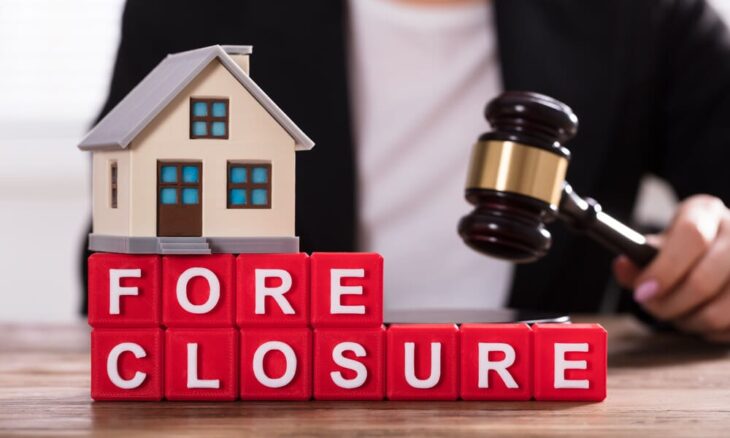Foreclosure isn’t a sudden event. It’s something that gradually unfolds over a prolonged period of time.
According to WeBuyHousesFastLongIsland.com, there are some steps you can take to possibly prevent, or at least delay, your foreclosure.
What are the most important steps to take and what are your chances of success?
Contents
What Is Foreclosure?
In a foreclosure, a lender recovers the property associated with a defaulted loan in an attempt to recover the amount owed on that loan. In other words, the bank takes your house in order to make sure the loan is fully repaid.
Foreclosures don’t happen when you miss a single payment. The foreclosure process is messy and time-consuming, not to mention expensive, for the bank pursuing it, so most banks are incentivized to avoid foreclosure at all costs.
When you miss a payment, they’ll usually reach out with a reminder, prompting you to make your payment plus any late fees that are relevant. If you miss several payments in a row, they’ll take more extreme measures to reach you, ultimately threatening more severe consequences and legal action.
Even when the foreclosure process begins, you’ll have an opportunity to fight back and set things right, so that you can keep living in your house and the bank can avoid this messy situation entirely.

Source: pinterest.com
Initial Preparation
When you find out that a foreclosure is on the horizon, there are a handful of steps you’ll need to take first.
- Remain calm. It’s natural to feel scared or overwhelmed when the bank is threatening to take your house. But it’s important to remain calm during this time. Keeping your emotions in check will help you think more rationally and take more reasonable action to keep your house. Take a few deep breaths, realize that all is not lost, and try to take things one step at a time.
- Understand that there’s a way out. There is a way out of foreclosure. In fact, you’ll have several opportunities to get out of foreclosure before it’s too late. You’ll need to realize this and embrace it if you’re going to be successful in doing so.
- Get advice. Don’t hesitate to get advice. This article is meant to help you initially navigate the foreclosure process, but you’ll find even better advice from a financial advisor, a lawyer, or a more seasoned expert. You can also spend more time doing research online to learn more about this subject, so you’re adequately prepared.
Steps to Take If You’re Facing Foreclosure
With that out of the way, these are the most important steps you can take to get out of foreclosure.
- Talk to the bank. Everything starts with a simple conversation with your bank. Once you start receiving messages about foreclosure in your future, you’ll want to make it a priority to talk with a representative as soon as possible. Get the details about why this foreclosure is happening and what could be done to stop it. Most of the time, the representative you speak with will be extremely helpful, since they, too, don’t want the foreclosure to continue. They’ll explain exactly what led to this situation and exactly what they need in order to resolve it.
- Get the money. Most of the time, the way out of foreclosure is to secure the money to pay back whatever you owe. If you have missed the past six mortgage payments, you’ll need to come up with the money to pay back most of that owed capital.

Source: facebook.com
If you’re in a tight financial situation, this may seem like an impossibility. However, there are a few strategies you can try to raise the money necessary for this purpose. For example, you can sell some of your possessions, you can pick up a side gig, or you can borrow money from friends and family members.
None of these are perfect solutions, but they could help you scrap together the money you need to get by.
- Negotiate. Many homeowners don’t realize this, but you have some room for negotiation in foreclosure. Again, banks are motivated to avoid foreclosure unless absolutely necessary; in many cases, they’ll be willing to reduce the amount you owe or come up with a payment plan to help you cover the costs. If you’re successful in negotiating, you could forge a clear path forward for yourself.
- Sell the house. Another option is to simply sell the house. If you’re in a hurry to raise the proceeds, you may be forced to take a slightly lower price on the home than you would have expected – but you can at least make all your back payments and walk away with some extra money on your own terms.
- Talk to a lawyer. If the bank is being unreasonable, or if you have reason to believe that you’re being treated unfairly, it’s a good idea to talk to a lawyer. They’ll be able to help you navigate the foreclosure process and possibly negotiate a better deal.
- File for bankruptcy. If all else fails, you may be able to stop the foreclosure by filing for bankruptcy. There are multiple types of bankruptcy that exist, so research the topic fully before committing to this direction.
Preventing a Future Foreclosure
Hopefully, you’ve been able to use the advice in this article to get out of your current foreclosure. It’s also important to establish new habits and decisions that help you avoid foreclosure in the future.
For example, it pays to do your due diligence and avoid taking on a mortgage that you may someday be unable to pay. It’s also important to practice good spending and budgeting habits, and set yourself up for a future career where you make plenty of money.

Source: fool.com
Foreclosure isn’t a fun topic, but it’s an important one if you’re a homeowner. It’s especially important if you’re going through a financially difficult situation. The good news is, with a handful of practical strategies, most people have the potential to avoid the foreclosure from bearing down on them.
